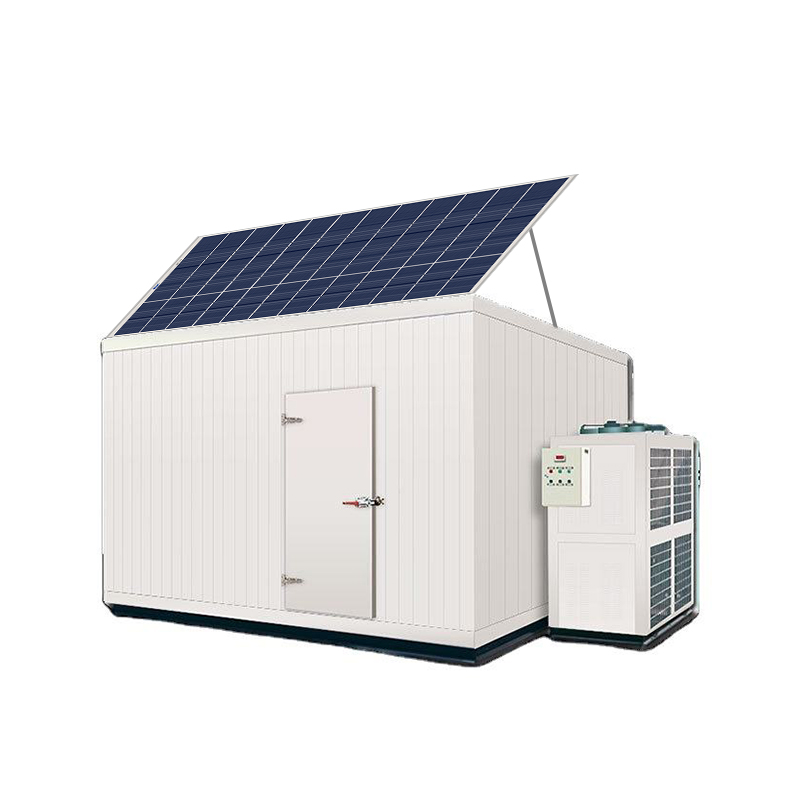Solar cold storage is becoming an environmentally friendly new choice for industries such as agriculture and healthcare. It uses solar energy for power supply, suitable for areas with power shortages, and can also reduce electricity bills and carbon emissions.


The core advantages include:
- 1. Off grid operation: No need to rely on the power grid, suitable for power deficient areas such as Africa and South Asia
- 2. Zero carbon emissions: A World Bank report shows that a 20 cubic meter solar powered cold storage reduces emissions by 5 tons of CO ₂ annually
- 3. Economy: The Indian case shows that the fruit and vegetable loss rate of farmers using solar powered cold storage has decreased from 30% to below 5%
Application scenario extension
- 1. Agricultural field
- In Kenya, the startup SolarFreeze provides modular solar cold storage for small farms, increasing mango growers' income by 200%.
- 2. Vaccine storage
- The United Nations Children's Fund (UNICEF) has deployed hundreds of sets of solar powered medical refrigeration equipment in sub Saharan Africa to ensure stable storage of vaccines at 45 ℃.
- 3. Commercial cold chain
- Retailers such as Wal Mart began to test solar refrigerated trucks, aiming to achieve zero emissions of cold chain logistics by 2030.


